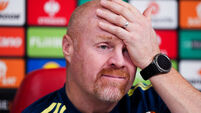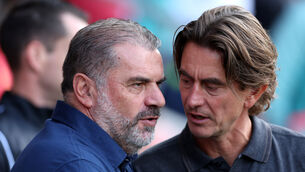Global game goes far beyond pitch for Iran
There’s just no getting away from it. As much as you try and take the Iranian national side as a standalone entity based on their results, their achievements and their ambition, nowhere across this World Cup do sport and politics, a team and its nation, entangle more. Where one ends and the other begins remains awkwardly blurred and uncomfortably confused, and it’s partially intentional.
Take as a starting point manager Carlos Queiroz. He was applauded into a press conference ahead of a game he’s said is the biggest in the nation’s history, knowing it’s one of his last chances to make his own history with the side. Despite impressive victories, the money isn’t there to renew his €1.5m contract due to international sanctions against the country. He talked here about the lead-up to this tournament and the effect the real world has had, with foreign training camps cancelled before other issues arose. “We are all aware of political and economic issues,” he said. “We didn’t have the opportunity to warm-up with games against Portugal and Spain but we played with some friendly teams, they didn’t even charge us. At that point we couldn’t have even imagined Argentina but here we are with a wonderful opportunity against a team of geniuses. But our players deserve respect.”














